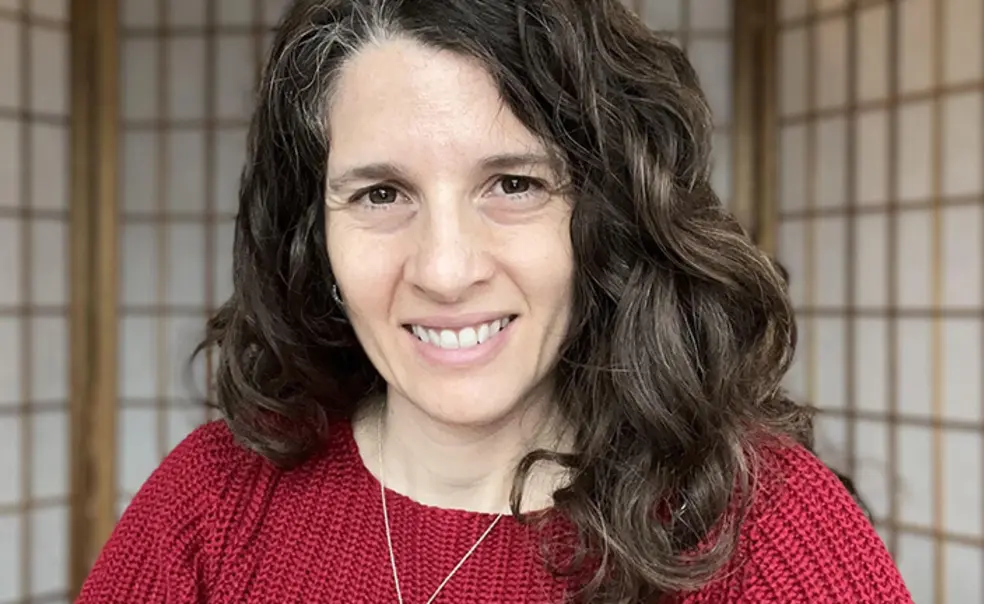Physician Lauren Peccoralo ’01 Is Helping Doctors and Nurses With Burnout
At Mount Sinai hospital, Peccoralo is working on a new center to address mental-health concerns among workers
During the first COVID-19 surge in New York, 35 percent of Mount Sinai’s hospital health-care workers reported experiencing depression, anxiety, or symptoms related to PTSD. And around 39 percent experienced burnout related to workplace stress.
By the time Mount Sinai circulated a follow-up survey six months later, between November 2020 and January 2021, rates of mental-health issues had dropped. But burnout was rising: It hit 45 percent.
Lauren Peccoralo ’01 has spent much of her career in medicine working on the delicate and urgent issues related to the mental health of doctors and nurses. She is a practicing primary care physician, an associate professor of medicine, and, since 2018, senior associate dean for faculty well-being and development at Mount Sinai’s Icahn School of Medicine.
Driven by data from that first survey, the hospital opened its Center for Stress, Resilience, and Personal Growth to address mental-health concerns among its own workers. The program screens staff for symptoms and provides them with free to inexpensive care. In January, a collaboration between Peccoralo’s office and the new center received a $2.1 million grant from the federal government to fund trainings and workshops for three more years.
“There’s never been a grant offered by the government to help the well-being of health-care workers.” said Peccoralo, who studied psychology as a pre-med undergraduate at Princeton.
“The need was very clear, and it remains true today, which is that there are just not enough mental-health resources in the country — in the world — to care for all the mental-health symptoms and illnesses that exist,” she said of her previous work treating patients.
This was true for health-care workers, too. Though burnout is not a medical diagnosis, Peccoralo noted “an association between it and having a mental-health diagnosis.”
New research on health-care burnout, including that series of internal surveys at Mount Sinai, has revealed why vast numbers of frontline workers are leaving the industry. Health-care workers during the pandemic are often tasked with making difficult decisions related to patient care. Many have witnessed patients die. Studies also suggest that rates of burnout are more common among women than men.
“It’s hard to know exactly what the comparison was before COVID because no one thought to do a study on these people before,” she added.
The trend is causing staffing shortages, putting even more pressure on the U.S. health-care system during new COVID surges. Peccoralo attributed the government’s renewed dedication and funding to the death by suicide of Lorna Breen, an emergency room doctor at NewYork-Presbyterian Allen Hospital, in April 2020. Breen’s siblings have since lobbied for funding to support health-care worker well-being. Mount Sinai is among 35 recipients of the new grant.
Mount Sinai will have until 2024 to complete the project. Peccoralo hopes the new programming — which builds on past hospital leadership trainings and resiliency workshops for staff in COVID units and ICUs — can begin as soon as the spring.
“Our own staff and faculty had trouble getting mental-health care, even within our own system,” said Peccoralo. “But now that the center exists, there’s pretty much no barrier.”










No responses yet